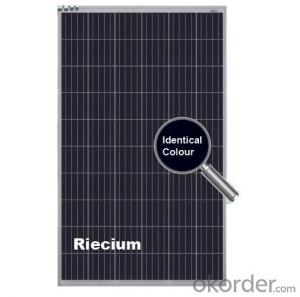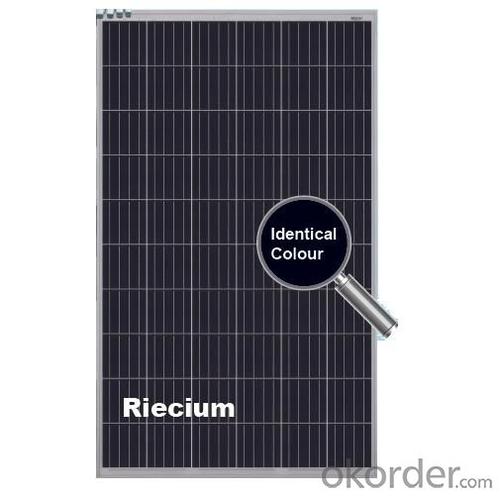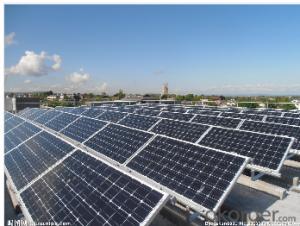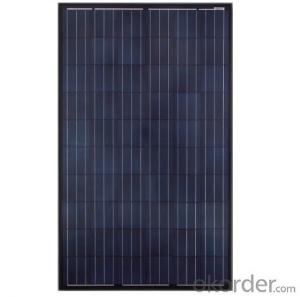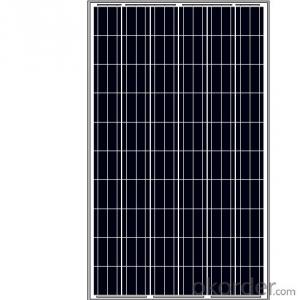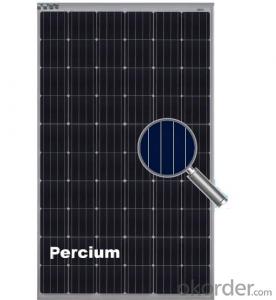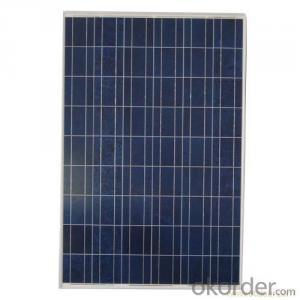Field Solar Panels Poly Panel JAP6 60/260W/4BB/RE
OKorder Service Pledge
Quality Product, Order Online Tracking, Timely Delivery
OKorder Financial Service
Credit Rating, Credit Services, Credit Purchasing
You Might Also Like
JAP6 60/260-280W/4BB/RE MULTICRYSTALLINE SILICON MODULE
Key futures:
PID-resistance tests
Certified by TÜV SÜD and ETL
Industry-leading cell tecnology
High quality components from best suppliers
Harsh climate environment endurance tests
Long-term reliability tests
Manufacturing inspected and certified by PI-Berlin and Solar-IF
100% in-house automatic manufacturing
2X 100% EL inspection ensuring defect-free
Datasheet:
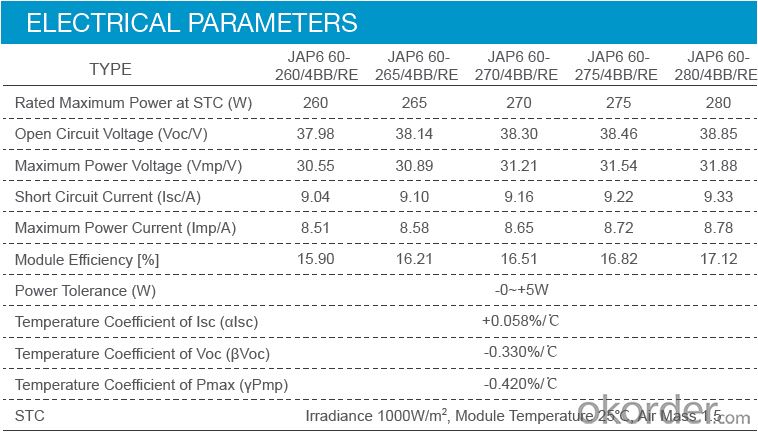
- Q: I need to be able to charge a 2v 7amp battery with a solar panel. I understand that the charge controller will keep the battery from over charging/discharging, but what I don't understand is the amps.The solar panel is rated at 5watts.The solar panel comes with a 2v 3amp charge controller but will I need to buy a 7amp charge controller and replace it with that for my battery pack? Please explain. Thanks in advance.
- 7 Amp Solar Charge Controller
- Q: How do solar panels impact air pollution?
- Solar panels have a positive impact on air pollution as they generate electricity without producing harmful emissions. By reducing the reliance on fossil fuels, solar panels help to decrease air pollution and improve air quality, contributing to a cleaner and healthier environment.
- Q: Can solar panels be used in areas with high levels of insect activity?
- Yes, solar panels can be used in areas with high levels of insect activity. While insects may occasionally land on the panels, their presence does not significantly affect the performance or efficiency of solar panels. Proper installation and regular maintenance can help minimize any potential issues caused by insects.
- Q: Can solar panels be installed on churches or religious buildings?
- Yes, solar panels can certainly be installed on churches or religious buildings. In fact, many religious institutions have embraced solar energy as a way to reduce their carbon footprint and demonstrate their commitment to environmental stewardship. Installing solar panels on churches not only helps to generate clean, renewable energy but can also serve as an educational example for the community.
- Q: By best I mean safest places. If I were to install them on my roof am I risking due to damage from weathering? Such as rain or snow. I don't get very high winds around here, nor any natural disasters such as hurricanes or tornadoes. Does anyone have solar panels that have been durable for a long time? Is it worth the investment?
- Probably not worth it. Sure, it is a great idea, but it will take decades to get your money back in energy savings. Today's panels are fine for a roof. However, I'd worry a little about the interface (where leaks could occur) especially in a retrofit. They, of course, will need to face south.
- Q: Can solar panels be used in areas with high levels of bird droppings?
- Yes, solar panels can be used in areas with high levels of bird droppings. However, regular cleaning and maintenance may be required to ensure optimal performance of the solar panels and prevent any potential damage or obstruction caused by the bird droppings.
- Q: Can solar panels be used in areas with high levels of electromagnetic interference?
- Yes, solar panels can be used in areas with high levels of electromagnetic interference. However, it is important to ensure proper grounding and shielding techniques are implemented to minimize the impact of electromagnetic interference on the performance and efficiency of the solar panels.
- Q: For example, If I were powering my house with solar panels, would it be more efficient or effective, (or I guess would I get more energy) out of a day that measured 90 degrees Fahrenheit as opposed to a day that is 70 degrees Fahrenheit.
- If you are talking about solar PV (photovoltaic), panels, (these are the solar panels that generate electricity), temperature DOES effect the power output. But it works opposite of your example. They actually work better in cooler temperatures. In other words, you will get more electricity on a cold, sunny day than you will on a warm, sunny day. The difference is not huge. It is a percentage point or two for every ten degrees cooler it is. But it is significant enough that solar system designers like myself need to know the temperature fluctuations in the area we are designing for. I know of a few improperly designed systems that were damaged on sunny winter days. Solar thermal panels (the ones that heat water) do not work this way. A warmer sunny day is usually better, but again, the difference is not huge.
- Q: What is the most efficient solar panel, how many would we need to power the United States, and how much land would it take?
- 50 billion panels million acres nukes are better. MIKE
- Q: What happens to solar panels during extreme weather conditions?
- Solar panels are designed to withstand a wide range of weather conditions, including extreme weather. However, during severe weather events such as hurricanes or hailstorms, there is a possibility of damage to solar panels. In such cases, the panels may become dislodged, cracked, or shattered. Regular maintenance and proper installation can help minimize the risk of damage, and many solar panels are built to withstand high winds, heavy rain, and even snow.
Send your message to us
Field Solar Panels Poly Panel JAP6 60/260W/4BB/RE
OKorder Service Pledge
Quality Product, Order Online Tracking, Timely Delivery
OKorder Financial Service
Credit Rating, Credit Services, Credit Purchasing
Similar products
Hot products
Hot Searches
Related keywords
